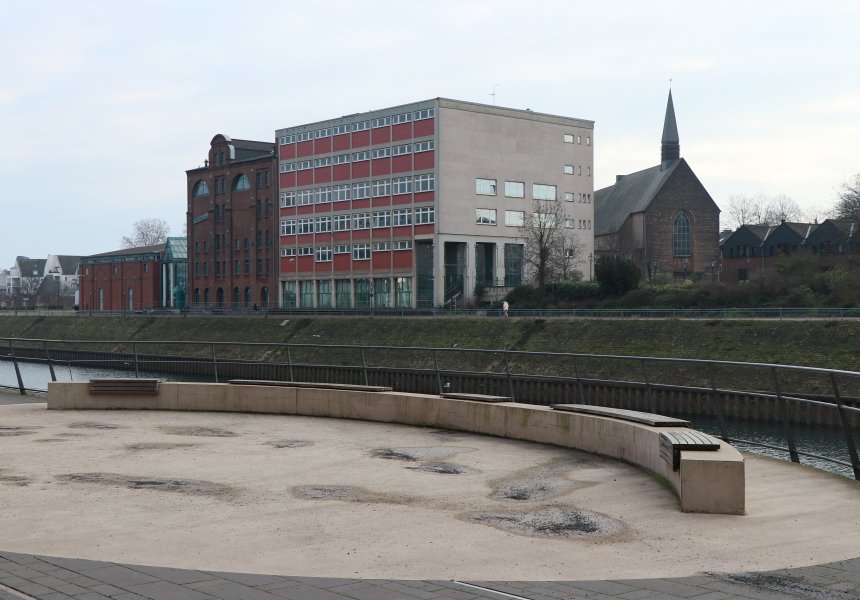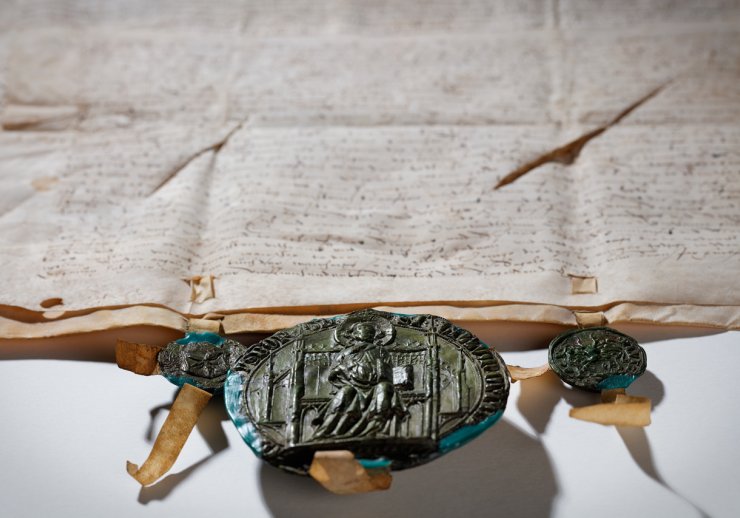City Archive of Duisburg
The City Archive stores, organizes and registers documents that are important for the history of the city of Duisburg. It makes these documents available for scientific research and interested members of the public.
Most of the documents in the City Archive originate from municipal administrative institutions and committees. The tradition reaches from the Middle Ages to the present. It includes classic analog information carriers (e.g. documents, registers, files) as well as electronic data. In addition to documents from the administration, documents of private origin are also stored in the City Archives. These include materials from Duisburg associations as well as personal papers of important personalities in local politics and cultural life. In the library of the archive, you will find, beginning in the middle of the 19th century, all important publications on the history of the city of Duisburg and the region (Ruhr area and Lower Rhine region).
In order to make the archive material accessible, it is verified and recorded by the archivists. This is done with the help of a database, into which older finding aids are increasingly being incorporated. The staff advises the users on all questions of urban history by referring to relevant archival sources and literature.
The City Archive has its own restoration workshop. Here, archival documents that have been damaged by natural decay or mechanical impact are preserved and restored using tried and tested procedures.
City Archive of Duisburg
Opening Times & Contact
Your Contact
Karmelplatz 5
47051 Duisburg
Germany
9.30 am - 5.00 pm (archive orders until 4.00 pm)
A prior appointment by telephone is strongly recommended. The Archive team can be reached on 0203/283-2154 from Monday to Thursday from 9 am to 3 pm and on Fridays from 9 am to 1 pm.


